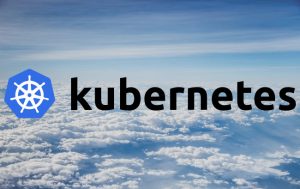
[Infographic] Docker Security: What You Need To Know?
While Docker is highly instrumental in facilitating developers, operators, enterprises and users to function smoothly, it is vital to ensure that their containers are firmly secured. To understand this notion in a better manner it is important to get acquainted with the overall scenario of Docker Security.
Evolution of OpenStack: TripleO
There has been a revolution of innovations in OpenStack ecosystem. The latest innovation is TripleO. It is also called OpenStack over OpenStack. The Red Hat OpenStack Platform director is a tool for installing and managing OpenStack environment. It is based primarily on the TripleO. TripleO is a method of deployment in which dedicated ..

Kubernetes: All You Need to Know!!!
Kubernetes is growing, kubernetes is gaining momentum and is de-facto orchestrator in cluster environment. There is lot of traction around using kubernetes for management in premise clusters as well as public clouds. This blog talks about the new jargons in kubernetes. There are 3 basic services exposed by kubernetes for accessing pods viz:

What is the Status of Containers and Microservices in Enterprises and Telecom
This article covers what are containers and microservices; what are the use cases of containers and microservices in enterprises and telecommunication sectors and evaluation of usability of containers for IT infrastructure. Article also focuses on recent development of containers in network functions ..

Evaluating Container Based VNF Deployment For Cloud Native NFV
Containerization can be possibly implemented in mobile edge computing to provide its benefits but full integration will be expected by service providers to enable cloud-native NFV.

Basics of Virtual Network Functions (VNFs) & Challenges
This article is focused on basics of VNFs: what are virtual network functions (VNFs), architecture of virtual network functions (VNFs), what are the basic components (VNFC and VNF Descriptors (VNFD)), challenges with current VNF development and onboarding to NFV environment and how cloud native VNFs can help overcome the challenges.

Why Cloud-Native VNFs are Really Important for NFV?
To deliver the promise of agility by NFV in 5G need exceptional automation at every level of NFV development. Building cloud-native VNFs seems to be the solution but it is at very early stage.

Highlights of Cisco Live 2017
It was a fabulous week at Cisco Live. This event is known for providing the knowledge enterprises need to flourish in their respective digital business. Other than being an inspiration, Cisco Live also brings opportunities to meet numerous technology innovators, thousands of education sessions, IT visionary leaders, important partners of Cisco, and

OpenStack Summit, May 2017, Boston – An Experience
I got the opportunity to attend the OpenStack summit in Boston. The summit was full of events mostly focused on OpenStack cloud, but many other things including NFV, Kubernetes, Containers, DevOps and approaches to pursuing multi-cloud approach. Many companies showcasing their products, platforms, software solutions were the highlights of the
OpenStack Cloud Orchestration – Automation for Cloud Infrastructure Deployment
Orchestration will enumerate different resources; it will do configuration & interconnection between them with the help of declarative template. AWS Cloud Formation, OpenStack Heat provides such declarative template that orchestrates all IT processes to build environment as single workflow and when we execute these templates it will run as single process.
